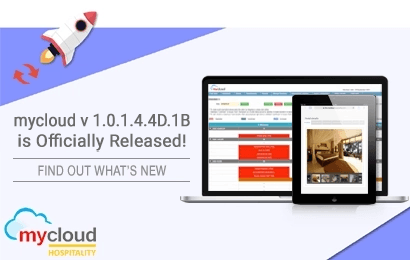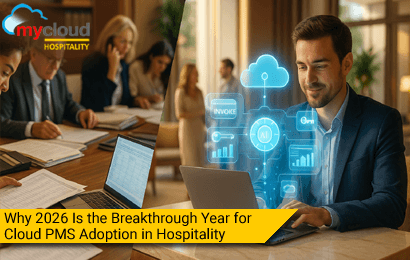Imagine checking into a hotel where every request is met instantly, from booking a last-minute spa session to ordering room service—all without waiting in long queues or navigating complex phone menus. In today’s fast-paced world, guest expectations have skyrocketed, yet the hospitality industry struggles to keep up due to rising operational costs and workforce shortages.
This is where AI-powered chatbots emerge as a game-changer, revolutionizing the way hotels interact with guests while optimizing resources. These digital concierges provide real-time assistance, offer personalized recommendations, and handle routine inquiries with remarkable efficiency. The numbers speak for themselves—according to stats 64% of guests now prefer AI-driven interactions for basic queries, allowing human staff to focus on high-value guest experiences.
From luxury resorts to budget-friendly accommodations, hotels worldwide are embracing AI chatbots to enhance engagement and reduce costs. Many forward-thinking establishments are also integrating these AI solutions with best hotel management software, creating a seamless digital ecosystem. Let’s explore how AI chatbots are redefining hospitality and why they’re no longer just an option—but a necessity.
The Growing Need for AI-Powered Chatbots in Hospitality
Today’s travelers expect seamless, 24/7 assistance, whether it’s booking a room at midnight or requesting an early check-in. However, staffing constraints and high labor costs make it challenging for hotels to meet these demands. According to a report by McKinsey, the hospitality industry faces a labor shortage of approximately 1.4 million workers globally.
The surge in digital transformation has made automation a necessity rather than a luxury. The hotel industry is projected to invest over $3 billion in AI-driven technology by 2027, highlighting the growing reliance on chatbots and automation. AI chatbots offer a competitive edge by ensuring personalized service while reducing the dependency on human resources. As automation gains traction, hotels leveraging AI-driven solutions can not only enhance guest experiences but also optimize their operational models. Let’s explore why chatbots are becoming a necessity in the hospitality sector.
How AI Chatbots Enhance Guest Engagement
The key to guest satisfaction lies in instant and efficient communication. AI chatbots are bridging the gap by offering:
- 24/7 Instant Responses: Guests can receive real-time answers to inquiries about hotel amenities, check-in/check-out times, or nearby attractions, just as they would do from a concierge desk. AI chatbots like Edward at premium properties assist guests instantly, eliminating wait times at the front desk.
- Personalized Recommendations: AI chatbots analyze guest preferences to offer tailored suggestions. For instance, Marriott’s chatbot recommends dining options based on previous stays. By integrating AI with CRM data, hotels can provide guests with curated offers and personalized room upgrades, enhancing loyalty and satisfaction.
- Seamless Booking & Reservations: AI-driven systems, like Hilton’s chatbot, allow guests to modify bookings effortlessly, enhancing convenience. Expedia reports that 65% of travelers prefer self-service booking options, a demand AI chatbots meet efficiently.
- Automating Common Guest Requests: From requesting extra towels to ordering room service, AI chatbots handle routine tasks, improving efficiency and reducing wait times. Hyatt Hotels utilize AI-powered messaging to streamline concierge services, significantly enhancing guest experiences.
With guest satisfaction directly impacting hotel revenue, AI chatbots play a crucial role in maintaining high service standards. Let’s explore how they also contribute to cost savings.
Reducing Operational Costs with AI Chatbots
Beyond guest engagement, AI chatbots significantly reduce hotel operating expenses:
- Minimizing Staff Workload: Automating repetitive tasks allows human employees to focus on high-value interactions. Accor Hotels reduced administrative workloads by 30% after implementing AI chatbots, allowing employees to dedicate more time to personalized guest interactions.
- Reducing Call Center Expenses: Hotels spend millions on customer support. AI chatbots can handle 80% of routine inquiries, as seen with Radisson’s digital concierge. A study by Juniper Research found that AI-driven chatbots could save the travel industry $11 billion annually by reducing call center costs.
- Enhancing Efficiency & Speed: Faster response times mean fewer abandoned bookings and increased guest satisfaction. A study by IBM found that AI chatbots reduce response time by 60%. Hyatt reported a 20% increase in direct bookings after implementing AI chatbots, leading to higher revenue margins.
- Lowering Training & Onboarding Costs: Training a front desk agent can cost up to $3,000. AI chatbots eliminate this expense by consistently delivering accurate information. This is particularly useful for large hotel chains where employee turnover is high.
By incorporating top hotel software, hotels can further optimize their operations, ensuring a seamless connection between AI chatbots and other digital solutions. Let’s now address some common concerns hotels have about AI adoption.
Overcoming Common Concerns & Challenges
Despite their advantages, AI chatbots come with challenges that hotels must address:
- Guest Skepticism About AI: While automation is beneficial, guests still crave human interaction. Leading brands like Four Seasons successfully blend AI with human service to maintain a personal touch. By ensuring a hybrid approach—where chatbots handle routine queries and staff manages complex interactions—hotels can strike the right balance.
- Data Privacy & Security: Protecting guest data is paramount. AI chatbots must comply with GDPR and CCPA regulations, ensuring encryption and secure transactions. Marriott’s data breach in 2018 highlighted the need for rigorous security measures, making compliance a top priority for AI-driven solutions.
- Integration with Existing Systems: Many hotels worry about compatibility issues. However, AI chatbots seamlessly integrate with property management systems (PMS) enhances overall efficiency. The key lies in choosing AI solutions that align with a hotel’s existing tech stack, ensuring smooth adoption and operational synergy.
Looking ahead, AI chatbots will only become more sophisticated.
Future of AI Chatbots in Hospitality
The future of hospitality is smart, and AI chatbots will play a central role:
- Emerging Trends: Chatbots powered by generative AI will offer even more natural interactions, similar to human concierges at luxury hotels. Advances in natural language processing (NLP) will make AI conversations more intuitive and engaging.
- Predictions on Chatbot Evolution: AI chatbots will integrate with IoT devices, enabling voice-controlled room services, as seen in Marriott’s smart hotel initiative. Gartner predicts that by 2030, 85% of guest interactions will be managed without human intervention.
- Shaping the Future of Guest Experiences: AI will personalize stays like never before, from customized room settings to AI-driven itinerary planning. AI-powered virtual concierges will guide guests throughout their stay, providing real-time suggestions for dining, entertainment, and activities.
Hotels that invest in AI technology now will position themselves as industry leaders, delivering unparalleled guest experiences.
Conclusion
AI-powered chatbots are not just a technological upgrade; they are a necessity for hotels looking to enhance guest experiences while controlling costs. By automating routine tasks and providing personalized, round-the-clock service, AI chatbots are revolutionizing the hospitality landscape. Hotels that embrace this innovation today will set themselves apart in an increasingly competitive market.
The hospitality industry is at a turning point, and AI chatbots are the key to a future of seamless, efficient, and personalized guest interactions. Now is the time to invest in AI chatbots and redefine hospitality for the digital age.
Are you ready to improve the guest experience? Schedule a free 30-day trial today and experience the future of hospitality management firsthand!










